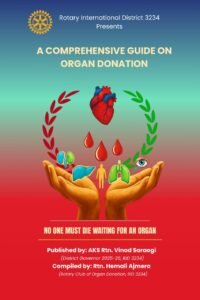The Anatomy Act in India governs the donation and use of dead bodies for anatomical examination, dissection, and research in medical education.
Anatomy Act in India – Overview
Full Name: The Anatomy Act (enacted individually by each Indian state)
First Introduced: 1949 (in Madras State); now adopted with variations in most Indian states
Purpose of the Act
- To regulate the donation and use of unclaimed bodies and voluntarily donated bodies for medical teaching, dissection, and research.
- To authorize recognized medical institutions to receive and utilize bodies legally.
- To prevent misuse or illegal trade in human remains.
Body Donation Under the Act
Under this act, individuals can pledge their bodies for donation after death by:
- Submitting a Body Donation Form to an authorized medical college or hospital.
- The next of kin confirming the donor’s wish post-death.
- The institution transporting and preserving the body for educational use.
Key Features:
- Bodies may be donated or unclaimed (e.g., from hospitals or prisons).
- Medical colleges must maintain a register of bodies received and used.
- Some states (like Maharashtra, Gujarat, Karnataka) also allow for organ donation and full-body donation under a common framework.
Common Legal & Ethical Considerations
- Consent is essential in case of voluntary donation.
- Institutions must handle bodies respectfully and ethically.
- The act varies across states, and some may require documentation like a domicile certificate or No Objection Certificate (NOC).
Examples of State Acts:
- The Gujarat Anatomy Act, 1959
- The Maharashtra Anatomy Act, 1949
- The Karnataka Anatomy Act, 1957
- The Delhi Anatomy Act, 1957

Every government-recognized medical college in India that accepts body donations is required to follow the Anatomy Act (State-specific) and its rules, which includes having a standardized body donation consent form.
Here’s how it works:
1. Legal Framework:
· The Anatomy Act is passed individually by each state government (e.g., Madhya Pradesh Anatomy Act, 1957).
· The Act allows licensed medical institutions to receive unclaimed bodies or donated bodies for the purpose of medical education and research.
· Rules under the Act specify the procedures for donation, consent, record keeping, and respectful disposal after use.
2. Institutional Compliance:
Each medical college (especially those with an Anatomy Department) is required to:
· Follow the respective state’s Anatomy Act.
· Maintain a Body Donation Consent Form as per guidelines.
· Have ethical and procedural approvals (e.g., body registry, death certificate, transportation protocol, etc.).
3. Variation in Forms:
· While the core information is similar across institutions (name, age, address, consent, witness), formats may differ:
o Some colleges have printed bilingual forms (Hindi/English).
o Others provide downloadable PDF or Word forms on their websites.
o Many also include instructions for family members at the time of death.
Key Points:
· Forms are institution-specific, but legally rooted in the state’s Anatomy Act.
· The donor (or next of kin) must sign the form, and two witnesses are typically required.
· In some states, notarization may be optional but is recommended.
· Many institutions also offer a donor card after registration.
Here is link for some of Form for certain medical colleges in the different states:
1. Bhopal, Form Body Donation form
2. KEM Hospital, Mumbai, Maharashtra body donation form
4. Government Medical College, Kerala
5. Bangalore Medical college & research institute, Karnataka
6. Tamilnadu Governmnet Body donation form
11. K.G. Medical University, U.P. Lucknow
12. BPS GMC for Women, Sonepat Haryana
13. AIIMS, Rishikesh, Uttarakhand
14. West Bengal Medical College, Kolkotta
16. Rajendra Institute of Medical Sciences, Ranchi, Jahrkhand
17. AIIMS, Taipur, Chhatisgadh
19. Gujarat Medical Reducation & Research Society, Ahmedabad, Gujarat
20. List of complete medical colleges in India( One may fine medical college near to their village or city from this list.
This article is written by Advocate Prashant Ajmera, a founder of OneIndiaOnelaw.org
OUR MISSION
Our mission is to promote a clear, consistent, and unambiguous implementation of The Transplantation of Human Organs and Tissues Act, 1994 and the Transplantation of Human Organs and Tissues Rules, 2014 in every hospital across India. We aim to ensure that every patient is able to access organ transplantation without facing any legal complexities or inconsistencies.
CONTACT US
- Office +91-9157184643
- info@oneindiaonelaw.org
- One India One Law - Copyright 2023
- PSR (Professional Social Responsibility) an initiative of Ajmera Law Group | Donation not accepted
- info@oneindiaonelaw.org



